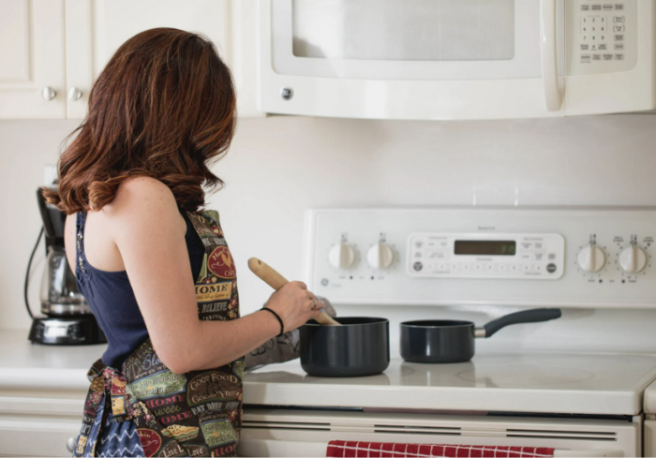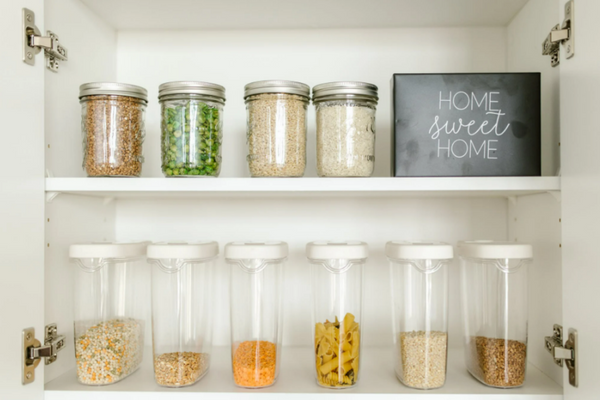
8 smart ways to save money when shopping for ingredients & cooking at home
We’re sure you’ve noticed the rising prices of many items when you head to the supermarkets. Enjoying your favourite tasty meals is getting harder to do when prices are constantly increasing on everyday items, as well as branded goods. It seems even opting for the cheapest option isn’t even that cheap anymore.
Instead of shortening our shopping lists and excluding tasty treats when we shop, we’ve come up with a list of our favourite money-saving tips you should consider the next time you’re buying items for your favourite home-cooked meals and creating your delicious dishes.
Plan
We know you’ve heard ‘don’t shop on an empty stomach’ and ‘stick to your shopping list’ one too many times, but they really are true! Taking the time to sit down and plan meals for the week ahead with things you have at home and basing your shopping list off that is a great way to watch your spending. Also, try and plan meals that have the same ingredients as others so you’re not buying lots of different foods which will add up to a fortune.

Combine cheaper ingredients with more expensive ones
Combining cheaper foods with more expensive ones is another great way to save money at dinner time. When making something like chilli con carne, instead of using a whole packet of mince, half the packet and freeze the rest. Add pulses such as kidney beans, chickpeas or lentils to keep your protein intake up and bulk out the dinner. Use the other half of the mince packet for a shepherd’s pie and add plenty of peas, carrots and other delicious veggies!
Make an ‘in the cupboard’ list
This is a great way to make sure you use up everything in your cupboard before you head to the shops. It doesn’t have to take long or be really fancy, just grab a pen and paper and write down what you have in your cupboards, fridge and freezer with their ‘best before’ or ‘use by’ date so you can keep track of what needs to be used up first so you won’t have to worry about food waste anymore.

Try swapping meat
We’re not saying you have to cut meat out of your diet altogether (even though that is a good way to save money as the prices of meat and fish have risen dramatically in recent times), just use cheaper meat in dishes such as curries, pastas or stir fries. Pork is often one of the low-cost meats, with rashers and sausages being cheap, so instead of meatballs in your pasta, why not try chopping up some sausages for a similar effect?
Versatile foods
Choosing foods like eggs is a great way to cook with a cheap ingredient and use it in many ways because they can be used for egg fried rice, omelettes or can be boiled or poached for breakfast. Potatoes are also very versatile because they can be mashed or cut into chips for dinner and baked for lunch, so there’s no fear of wasting food or having boring meals.
Check deals online before shopping
Use every resource you can to save money when food shopping. So many supermarkets share their offers online so have a browse before you go in-store. Shops like Dunnes, Tesco and Lidl share special offers with their shoppers on their websites and on their mobile apps. Having these loyalty memberships from a variety of supermarkets allows you to see the best offers that are on and they often send you vouchers and money-off coupons to save some extra dosh!

Use your freezer
We’re all guilty of making a large portion of our favourite dinner, being too full to finish it and putting it in the fridge because we promise ourselves we’ll remember to bring it to work for lunch the next day. Fast forward to three or four days later and the leftovers are still sitting in the fridge, going bad, and needing to be thrown in the bin. Instead of wasting food like this, always freeze leftovers, even if it’s a small amount, it can go towards a future meal or late-night snack. Even if you’re making a sauce that only requires half a tin of chopped tomatoes or are following a smoothie recipe that needs half a banana, freeze whatever you don’t need because they can always come in handy in the future.
Bulk Buy
We’re not saying you have to go to your local wholesalers and buy a 10kg bag of rice, but for example, instead of buying single packets of microwave rice, buy a 1kg bag to cook yourself. You may think it'll take a little longer, but the rice can boil away as you cook your curry or chilli so everything will be ready at the same time. A 1kg bag of rice is normally only a little bit more expensive than microwave packets but will last you so much longer.





